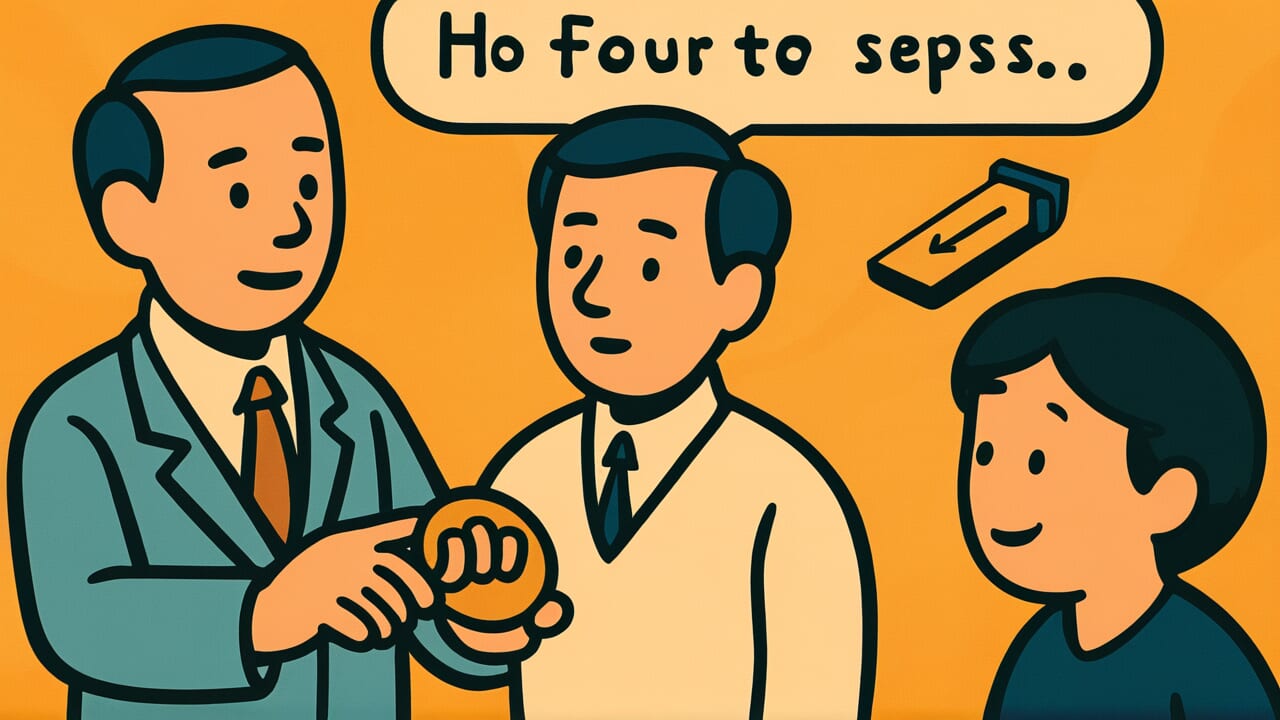How to Read “Even a madman’s words, the sage chooses from them”
Kyōfu no gen mo seijin kore wo erabu
Meaning of “Even a madman’s words, the sage chooses from them”
This proverb means that even if words come from a foolish or senseless person, a wise sage will pick out the valuable parts and use them.
In other words, regardless of the speaker’s status, reputation, or intelligence, if the words themselves have value, you should notice them and learn from them.
This saying is used when teaching the importance of listening humbly to anyone’s opinion without dismissing it outright.
It’s also used when advising that good ideas should be adopted regardless of who suggests them.
In modern times, we often dismiss others’ opinions because of their job title or lack of experience.
But this proverb teaches us that truly wise people maintain an attitude of learning from everyone.
Any person’s words might contain a fragment of truth. The ability to recognize that truth is real wisdom.
Origin and Etymology
This proverb is believed to originate from the ancient Chinese classic “Shijing” (Book of Songs).
The Shijing is China’s oldest collection of poetry, gathering poems from the 11th to 6th centuries BCE. It has been valued as one of the Confucian classics.
In ancient China, the term “kyōfu” (madman) was used to describe “a foolish person” or “someone without good judgment.”
On the other hand, “seijin” (sage) means an ideal person with the highest virtue and wisdom. This contrast forms the core of this proverb.
What’s interesting is how the word “erabu” (to choose) is used. It doesn’t simply mean to select.
It represents an active process of discerning and extracting what’s valuable from many words.
The idea embedded here is that sages have the power to see the value in words themselves, without being influenced by the speaker’s position or reputation.
In Confucian teachings, the attitude of learning is emphasized through sayings like “When three people walk together, one of them can be my teacher.”
This proverb shares the same spirit, teaching a humble attitude that there’s something to learn from anyone.
It has been passed down in Japan since ancient times and used in contexts explaining the importance of learning and self-cultivation.
Usage Examples
- I initially dismissed the new employee’s proposal, but “even a madman’s words, the sage chooses from them,” so let me think about it more carefully
- Sometimes a child’s casual remark makes us realize something important—perhaps that’s what “even a madman’s words, the sage chooses from them” means
Universal Wisdom
The deepest truth this proverb reveals is that wisdom isn’t about the amount of knowledge you have.
It’s about having the eye to recognize value. People tend to judge the worth of someone’s words based on their title, appearance, or past reputation.
However, truth doesn’t always come from the mouths of distinguished people.
Why has this proverb been passed down for thousands of years? Perhaps because humans are fundamentally “weak to authority.”
We unconsciously judge things through the filter of a speaker’s position and reputation. And we rarely notice when that filter is clouded.
What makes a sage a sage isn’t abundant knowledge. It’s the humility to learn from anyone’s words and the insight to see their essence.
This attitude is what brings true growth.
In human society, differences in position and experience exist. But truth has no hierarchy, no old or new.
A child’s simple question can shatter an adult’s fixed ideas. A beginner’s fresh perspective can point out blind spots that experts have missed.
This proverb quietly yet powerfully speaks to this equality of human potential.
When AI Hears This
Information theory founder Shannon made a remarkable discovery in 1948.
He showed that even through a noise-filled communication channel, with proper encoding and decoding, you can extract information almost perfectly.
In other words, the receiver’s processing ability is more important than the information source’s quality.
What’s fascinating about this proverb is that it points to exactly this asymmetry.
From the word “madman,” we imagine an information source with an extremely low signal-to-noise ratio.
Even if 95 out of 100 statements are meaningless, if the remaining 5 have value, extracting them is worthwhile.
The sage’s ability is this high filtering precision that doesn’t miss that 5 percent.
Modern machine learning practices exactly this. Google’s translation system learns from massive data including low-quality translation examples on the internet.
Even though individual data points are full of errors, correct patterns emerge through statistical processing.
In other words, algorithm quality matters more than data quality.
What’s interesting is that this principle suggests “how you learn” is more important than “who you learn from.”
Rather than selecting information sources, you improve the receiver’s processing ability.
This is exactly why developing noise-resistant algorithms is prioritized over data cleansing in today’s big data era.
Lessons for Today
In modern society, with the rise of social media, anyone can share information.
But at the same time, we’ve grown more likely to judge the value of people’s words by their follower count or job title.
This proverb teaches us something important.
First, maintain an attitude of listening without prejudice, no matter who the other person is.
Do you dismiss young employees’ opinions in meetings? Do you brush off children’s questions carelessly?
Are you closing your ears because of differences in position or experience?
Second, cultivate the eye to see the essence of words. Focus on what is being said, not who said it.
Even if the expression is clumsy, make an effort to grasp the truth behind it. This is an ability that sharpens with practice.
Most importantly, never forget humility. The attitude that you can learn even from those you consider inferior is what keeps you growing.
A true sage is someone who can see everyone as a teacher.
Starting today, why not listen once more to the words of everyone around you? There might be unexpected treasures hidden there.



Comments